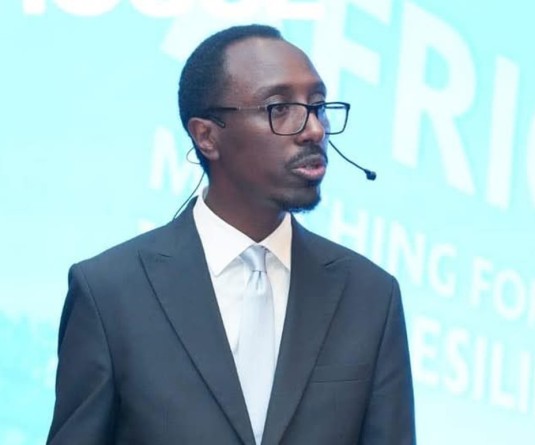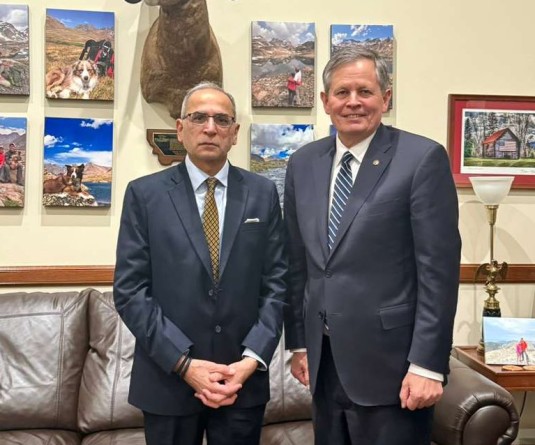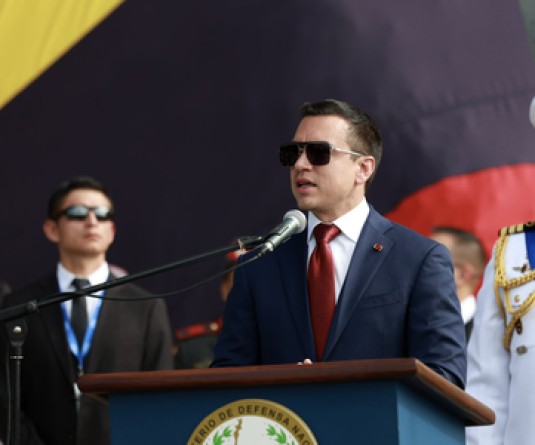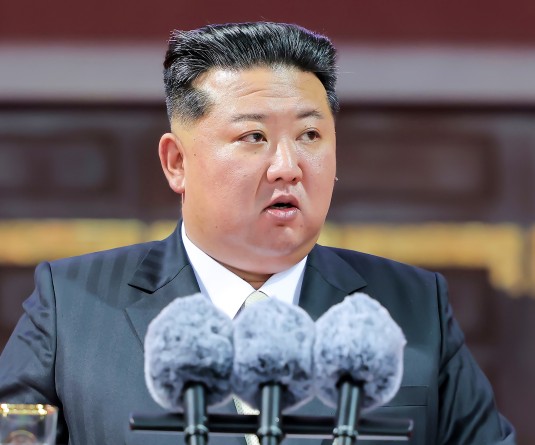
ISLAMABAD, May 27 (Reuters): U.S. Secretary of State Hillary Clinton said on Friday that Pakistan needed to take decisive steps against Islamist militancy and that relations between the two allies, tense since the killing of Osama bin Laden, had reached a turning point.
Clinton, the most senior U.S. official to visit Pakistan since U.S. Navy SEALS killed the al Qaeda leader this month, appeared to be trying to smooth over strains, repeating that there was no evidence that any senior Pakistani officials had known of bin Laden's whereabouts. But she also said she had asked Pakistani President Asif Ali Zardari, Prime Minister Yusuf Raza Gilani as well as Army chief General Ashfaq Kayani to do more to fight militants.
"This was an especially important visit because we have reached a turning point," a somber Clinton told reporters, after meeting the Pakistani officials with chairman of U.S. Joint Chiefs of Staff Admiral Mike Mullen. "We look to Pakistan, to the government of Pakistan to take decisive steps in the days ahead." Clinton and other American officials in Islamabad declined to say what those steps were. The discovery of the al Qaeda leader in a garrison town just 50 km (30 miles) away from the capital, Islamabad, on May 2 raised fresh doubts about Pakistan's reliability as a partner in the U.S.-led war on militancy.
Clinton said Pakistani officials had told her "someone, somewhere" had been providing support for bin Laden in Pakistan, but reiterated there was no evidence of any sort of complicity by senior government officials. "We are trying to untangle the puzzle of bin Laden's presence in Abbottabad," she said. "But I want to stress again, that we have absolutely no reason to believe that anyone in the highest level of the government knew that."
Clinton has emphasized the need to continue working closely with Pakistan, but her visit to Islamabad, kept secret for security reasons, came as U.S. lawmakers questioned whether Pakistan should be receiving billions of dollars in aid.
The Pakistan government welcomed the death of bin Laden but was outraged and embarrassed by the secret raid in Abbottabad, where bin Laden had lived for years, as a breach of its sovereignty. Clinton was unapologetic over the raid, which was the latest in a series of incidents, from U.S. drone attacks inside Pakistan to the arrest of a CIA contractor for killing two Pakistanis, that have strained ties. Instead, she noted that Pakistan has a high concentration of militant leaders.
"For the past decade, many of the world's most vicious terrorists, including al Qaeda's most important leaders, have been living in Pakistan," she said. She said the United States was attempting to split the Taliban in Afghanistan from al Qaeda, and encourage those militants to reconcile with the Afghan government. And while acknowledging Pakistan's interests in a stable and secure Afghanistan, she noted that Pakistan needs to be more helpful. "Many of the leaders of the Taliban continue to live in Pakistan," she said. "Pakistan has the responsibility to help us help Afghanistan by preventing insurgents from waging war from Pakistani territory."
There has been scant evidence of Islamist militancy abating despite billions of dollars in U.S. aid.
On Thursday, a suicide car bomber killed 34 people outside a police station in the northwestern town of Hangu, and last weekend a group of militants stormed a heavily guarded naval base in the city of Karachi and fought a 16-hour battle with hundreds of soldiers. The attacks have raised fresh doubts about Pakistan's ability to quell militancy and protect its nuclear arsenal.
CIA TEAM TO SCOUR BIN LADEN HIDEOUT
In the latest sign of deepening distrust between Washington and Islamabad, Pakistan has told the United States to halve the number of military trainers stationed in the country.
However, a U.S. official said Washington had seen some signs of improved Pakistani cooperation, including the return of the tail section of a helicopter that crashed during the night-time raid in Abbottabad and access to bin Laden's wives. In a further apparent move to reduce tension, Pakistani authorities have agreed to allow the CIA to send a forensic team to scour the former hide-out of bin Laden for new clues.
A U.S. official in Washington, who asked for anonymity while discussing sensitive information, said the forensic experts would look for evidence hidden in walls or buried under floors, but there was no guarantee they would find anything.
Many U.S. lawmakers, skeptical that Pakistani officials did not know of bin Laden's presence, want to cut U.S. aid to Pakistan, which the White House views as vital to counter-terrorism and to hopes of stabilizing Afghanistan.
Just a day before coming to Pakistan, Clinton said working with Pakistan was a strategic necessity for the United States, even as she pressed Islamabad to act more decisively to counter militancy. "The United States and Pakistan have worked together to kill or capture many ... terrorists here on Pakistani soil," she said.
Clinton, the most senior U.S. official to visit Pakistan since U.S. Navy SEALS killed the al Qaeda leader this month, appeared to be trying to smooth over strains, repeating that there was no evidence that any senior Pakistani officials had known of bin Laden's whereabouts. But she also said she had asked Pakistani President Asif Ali Zardari, Prime Minister Yusuf Raza Gilani as well as Army chief General Ashfaq Kayani to do more to fight militants.
"This was an especially important visit because we have reached a turning point," a somber Clinton told reporters, after meeting the Pakistani officials with chairman of U.S. Joint Chiefs of Staff Admiral Mike Mullen. "We look to Pakistan, to the government of Pakistan to take decisive steps in the days ahead." Clinton and other American officials in Islamabad declined to say what those steps were. The discovery of the al Qaeda leader in a garrison town just 50 km (30 miles) away from the capital, Islamabad, on May 2 raised fresh doubts about Pakistan's reliability as a partner in the U.S.-led war on militancy.
Clinton said Pakistani officials had told her "someone, somewhere" had been providing support for bin Laden in Pakistan, but reiterated there was no evidence of any sort of complicity by senior government officials. "We are trying to untangle the puzzle of bin Laden's presence in Abbottabad," she said. "But I want to stress again, that we have absolutely no reason to believe that anyone in the highest level of the government knew that."
Clinton has emphasized the need to continue working closely with Pakistan, but her visit to Islamabad, kept secret for security reasons, came as U.S. lawmakers questioned whether Pakistan should be receiving billions of dollars in aid.
The Pakistan government welcomed the death of bin Laden but was outraged and embarrassed by the secret raid in Abbottabad, where bin Laden had lived for years, as a breach of its sovereignty. Clinton was unapologetic over the raid, which was the latest in a series of incidents, from U.S. drone attacks inside Pakistan to the arrest of a CIA contractor for killing two Pakistanis, that have strained ties. Instead, she noted that Pakistan has a high concentration of militant leaders.
"For the past decade, many of the world's most vicious terrorists, including al Qaeda's most important leaders, have been living in Pakistan," she said. She said the United States was attempting to split the Taliban in Afghanistan from al Qaeda, and encourage those militants to reconcile with the Afghan government. And while acknowledging Pakistan's interests in a stable and secure Afghanistan, she noted that Pakistan needs to be more helpful. "Many of the leaders of the Taliban continue to live in Pakistan," she said. "Pakistan has the responsibility to help us help Afghanistan by preventing insurgents from waging war from Pakistani territory."
There has been scant evidence of Islamist militancy abating despite billions of dollars in U.S. aid.
On Thursday, a suicide car bomber killed 34 people outside a police station in the northwestern town of Hangu, and last weekend a group of militants stormed a heavily guarded naval base in the city of Karachi and fought a 16-hour battle with hundreds of soldiers. The attacks have raised fresh doubts about Pakistan's ability to quell militancy and protect its nuclear arsenal.
CIA TEAM TO SCOUR BIN LADEN HIDEOUT
In the latest sign of deepening distrust between Washington and Islamabad, Pakistan has told the United States to halve the number of military trainers stationed in the country.
However, a U.S. official said Washington had seen some signs of improved Pakistani cooperation, including the return of the tail section of a helicopter that crashed during the night-time raid in Abbottabad and access to bin Laden's wives. In a further apparent move to reduce tension, Pakistani authorities have agreed to allow the CIA to send a forensic team to scour the former hide-out of bin Laden for new clues.
A U.S. official in Washington, who asked for anonymity while discussing sensitive information, said the forensic experts would look for evidence hidden in walls or buried under floors, but there was no guarantee they would find anything.
Many U.S. lawmakers, skeptical that Pakistani officials did not know of bin Laden's presence, want to cut U.S. aid to Pakistan, which the White House views as vital to counter-terrorism and to hopes of stabilizing Afghanistan.
Just a day before coming to Pakistan, Clinton said working with Pakistan was a strategic necessity for the United States, even as she pressed Islamabad to act more decisively to counter militancy. "The United States and Pakistan have worked together to kill or capture many ... terrorists here on Pakistani soil," she said.
US bows to Pakistan demand, cuts troops
WASHINGTON, May 27 (Agencues): US has said it has begun pulling out American troops out of Pakistan, after Islamabad officially asked to reduce troops from its soil amid tensions over the American raid that killed al-Qaida chief Osama bin Laden. The Pakistan government had asked for a scale-down of US troop contingent of more than 200 men from the country,earlier this month,Pentagon spokesman Col Dave Lapan said.We were recently (within the past two weeks) notified in writing that the government of Pakistan wished for the US to reduce its footprint in Pakistan.Accordingly,we have begun those reductions, he said.
The Pentagon spokesmen did not mention the number of troops to be pulled out.Most of the US forces present on the Pakistani soil are special forces that train and advice Pakistans Paramilitary Frontier Corp,engaged in fighting Pakistani Taliban,al-Qaeda and other foreign militants in the restive tribal region,bordering Afghanistan. Pakistan informed the US in the last week or two that it would not need some US special forces trainers advising the Pakistani military,the Pentagon said.Pakistani security officials said the decision came three days after the al-Qaida leaders death. We dont need unnecessary people here.They cause problems for us instead of being helpful, said a Pakistani security official.He said the withdrawal might start by early June. Pentagon spokesman Colonel Dave Lapan said there had been no real change to the small US.military training mission in Pakistan. The number of trainers in Pakistan was not disclosed but Lapan said the entire military mission has ranged between 200 and 300 people.
WASHINGTON, May 27 (Agencues): US has said it has begun pulling out American troops out of Pakistan, after Islamabad officially asked to reduce troops from its soil amid tensions over the American raid that killed al-Qaida chief Osama bin Laden. The Pakistan government had asked for a scale-down of US troop contingent of more than 200 men from the country,earlier this month,Pentagon spokesman Col Dave Lapan said.We were recently (within the past two weeks) notified in writing that the government of Pakistan wished for the US to reduce its footprint in Pakistan.Accordingly,we have begun those reductions, he said.
The Pentagon spokesmen did not mention the number of troops to be pulled out.Most of the US forces present on the Pakistani soil are special forces that train and advice Pakistans Paramilitary Frontier Corp,engaged in fighting Pakistani Taliban,al-Qaeda and other foreign militants in the restive tribal region,bordering Afghanistan. Pakistan informed the US in the last week or two that it would not need some US special forces trainers advising the Pakistani military,the Pentagon said.Pakistani security officials said the decision came three days after the al-Qaida leaders death. We dont need unnecessary people here.They cause problems for us instead of being helpful, said a Pakistani security official.He said the withdrawal might start by early June. Pentagon spokesman Colonel Dave Lapan said there had been no real change to the small US.military training mission in Pakistan. The number of trainers in Pakistan was not disclosed but Lapan said the entire military mission has ranged between 200 and 300 people.






